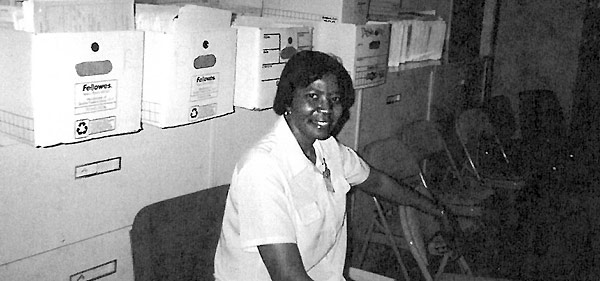Blog
Jeanne Taverne: Pushing for Healthcare in a Broken System

Having worked as an RN for thirty-four years, Jeanne Taverne is well-acquainted with the struggles her patients face. “Unjust social and economic policies contribute to health inequity,” she says. “I have seen clients coming to our clinics that do not have access to health care because of lack of insurance. These clients need an advocate to help them navigate through the health system.”
Last July, Jeanne, a genetic coordinator with the Department of Public Health in Cook County, Illinois, learned about the new Health Inequity and Care certificate offered by National Nurses United in collaboration with American University’s Anthropology Department. Seeing a chance to bolster her understanding of health issues and expand her advocacy efforts, Jeanne applied for the program and received a full scholarship from NNU. With five core courses that address the root causes and features of health inequity–including neoliberal globalization, militarization, technological encroachment on healthcare providers’ scope of practice and their ability to advocate for their patients, geographic disparities in health and more–the program is designed for students interested in better understanding health and healthcare injustice in order to more effectively advocate for healthcare for all. The online class format provides a unique opportunity for RNs to study alongside graduate and undergraduate American University students in virtual classrooms.
Jeanne took her first course in the program–Neoliberal Globalization and Health–in Fall 2016. She called the course “well-organized and intense.” Students were asked to examine the growth of neoliberalism in the current-day ever-more interconnected world. For their final term project, students had to apply what they learned in class to explore in greater depth the experience of disease, focusing on the contributing social and political factors. Using the 2014 outbreak of Pertussis (also known as whooping cough) as a case study, Jeanne analyzed the resurgence of Vaccine-Preventable Diseases. In her final project she examined a combination of structural issues like limited access to healthcare, the impact of the anti-vaccine movement, and the dangers posed by decreasing effectiveness of certain vaccines. She argued that health risks associated with ineffective vaccines are symptoms of the political and economic structure of neoliberalism including efforts to privatize public resources, erode labor protections, and commodify health services at the expense of public health.
For Jeanne, the course was a chance to more deeply explore issues she is already well-aware of as a healthcare professional. “I’ve seen how impoverishment makes a person sicker,” she states. “But the fragmented and unsuccessful services for the poor we deal with as nurses on a daily basis are only the tip of the iceberg.” As a nurse and a nurse educator Jeanne says she appreciated how the course helped her understand the similar harmful impacts that have resulted from market-based restructuring in healthcare worldwide. “Policies around the world have been disastrous for health care delivery and access,” she states. But these policies are being challenged “through transnational alliances between groups that are struggling for better wages and working conditions, environmental protection and democracy, freedom and social and political justice worldwide.”
Jeanne now uses the knowledge she has gained in the Health Inequity and Care program in her practice. She looks forward to completing the certificate, and asserts that “the program provides motivation for us in healthcare to continue to do what we are doing now…pushing for better healthcare for all.”